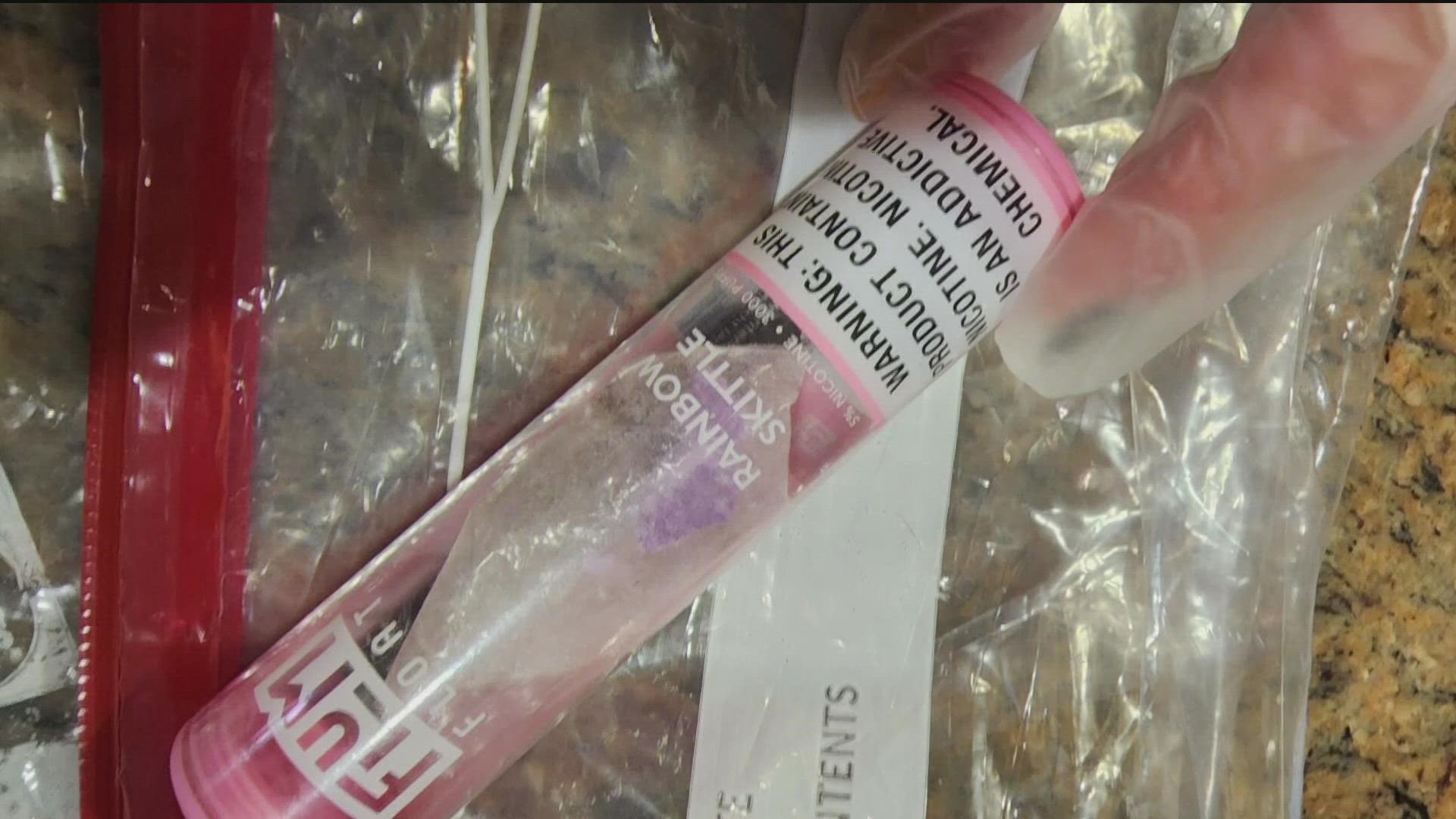SACRAMENTO, Calif. — Mike Wood wished he didn't have to do this interview.
“We're here today because of the tragic death of my daughter, Victoria,” he told Political Reporter Morgan Rynor Tuesday afternoon.
He called his 22-year-old daughter 'Tori' for short.
“I love you, little bear, and I'll miss you forever. You’re half my heart,” he said.
Three weeks ago, he got the phone call every parent dreads.
“She had an overdose on 10/2," he said.
Doctors pronounced Tori brain dead three days later.
“I don't know that she even knew she was taking fentanyl,” he said. Tori had several drugs in her system.
What Wood does know is that he wants the person that sold his daughter the drugs to be held responsible.
“I just want them to take me seriously, take my daughter's death seriously and do something about it," he said. "Even if the investigation leads to no conviction, at least I know they tried.”
Roseville Police Department does not have an open investigation. They said the sheriff’s department is responsible. The sheriff’s office told the newsroom they’re only involved as a coroner in this case. As of right now, no one is investigating.
“To me, it seems very simple. You take the evidence, you test it, you check the phone for any contacts, check her Google maps to where she might have gone and you can follow all those leads,” Wood said.
Wood is sitting with a bag of drugs and his daughter’s phone hoping the police use it to investigate. Once or if that does happen, he wants a murder charge. It’s happened in California, but it’s very uncommon.
“To me, it's a no brainer," Wood said. "I don't understand why there's such a hiccup as far as getting prosecutions.”
Placer County District Attorney Morgan Gire explained why getting a murder charge for fentanyl is so uncommon.
“We have to ask ourselves, 'What does the dealer know about what they're selling? Are they selling something they know might kill somebody?' And, if they do, do they willingly engage in that behavior knowing those risks?" Gire said.
If the answer is yes, than they can evaluate for a murder charge. It's easier if the person is involved in deception, making the person believe they are buying something other than fentanyl.
"We're seeing it being deceptively marketed as something that it's not, and that changes the legal landscape," Gire said. "So before, if someone was addicted over the course of a lifetime, however long that lifetime is, and they are chronically using substances and ultimately their body gives out from it, the evidence of that case usually doesn't lend itself to a prosecution for murder for the person who sold it. Fentanyl is very different, different specifically regarding these cases where they are fake pills when someone is buying what they think is a Percocet."
There was a bill in the legislature, SB 350, also known as Alexandria's Law, that would have required a person arrested for drug dealing be notified of the risks associated with the drugs. That way, if someone dies in the future, it’s easier to charge them with voluntary manslaughter or murder.
“It's a very big problem, and I wish there was an easy answer to fix it," Wood said. "Only thing I could think of was obviously more law enforcement, stricter policies against it, like Alexandria's law, I think would help at least put a dent in it."
The bill did not make it through the committees.
Over the next two weeks before the Nov. 8 election, voters will hear a lot of politicians talk about fentanyl.
Nathan Hochman, who’s running for attorney general, vowed to help make that law in California.
Attorney General Rob Bonta created a task force, announced a few weeks ago that they seized millions fentanyl pills, and said they will prosecute the person based on the case.
The Republican state senator who is running against Governor Gavin Newsom, Brian Dahle, also said on day one as governor he would make fentanyl a state of emergency.
WATCH ALSO:

